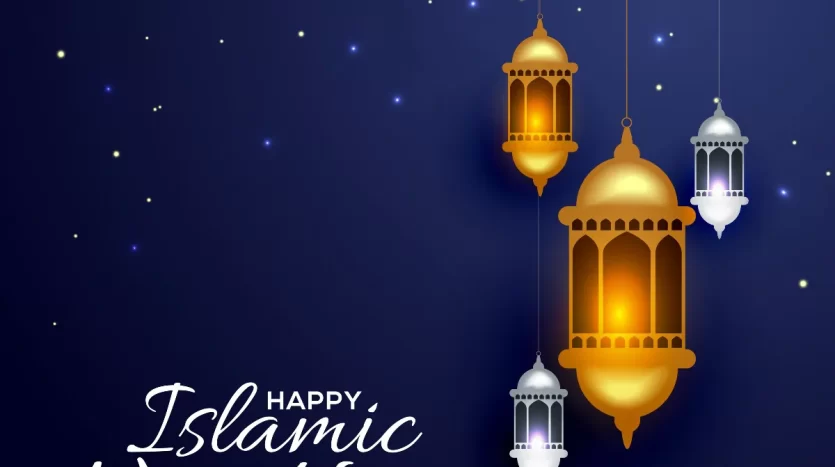Islamic New Year Holiday
The Islamic New Year is a significant event celebrated by Muslims worldwide. In the United Arab Emirates (UAE), the Islamic New Year holiday holds great cultural and religious importance. This article delves into the details of the Islamic New Year holiday in the UAE for the year 2023, shedding light on its significance, traditions, and celebrations.
Table of Contents
Introduction
Understanding the Islamic New Year
The Significance of the Islamic New Year in UAE
Islamic New Year Observances
Traditional Customs and Practices
Festive Activities in the UAE
Commemorations in Mosques
Reflection and Self-Improvement
Family and Community Gatherings
Special New Year’s Cuisine
Decorations and Illuminations
The Spirit of Giving
Islamic New Year and National Unity
Public Holiday and Work-Life Balance
Conclusion
Frequently Asked Questions
Introduction
The Islamic New Year marks the beginning of the Hijri calendar, which follows the lunar cycle and holds great religious significance for Muslims worldwide. In the UAE, the Islamic New Year holiday is observed with joy, reverence, and a sense of renewal.
Understanding the Islamic New Year
The Islamic New Year, also known as Hijri New Year or Ras as-Sanah al-Hijriyah, commemorates the migration of the Prophet Muhammad from Mecca to Medina. This event, known as the Hijra, took place in the year 622 CE and signifies the beginning of the Islamic era.
The Significance of the Islamic New Year in UAE
The Islamic New Year holds deep cultural and religious importance in the UAE. It is a time for Muslims to reflect on their faith, seek blessings for the coming year, and remember the teachings of the Prophet Muhammad.
Islamic New Year Observances
On the Islamic New Year, Muslims in the UAE engage in various observances to commemorate the significance of this auspicious event. These observances include prayers, fasting, recitation of the Quran, and acts of charity.
Traditional Customs and Practices
During the Islamic New Year, the people of the UAE embrace traditional customs and practices. Families gather together for special meals, exchange greetings, and express gratitude for the blessings of the past year.
Festive Activities in the UAE
The UAE is known for its vibrant celebrations during the Islamic New Year. Festivals, parades, and cultural events take place across the country, allowing residents and tourists to immerse themselves in the rich traditions of the UAE.
Commemorations in Mosques
Mosques play a central role in the observance of the Islamic New Year in the UAE. Special prayers are held, and religious leaders deliver sermons that emphasize the importance of unity, faith, and compassion.
Reflection and Self-Improvement
The Islamic New Year is a time for self-reflection and self-improvement. Muslims in the UAE use this occasion to set personal goals, seek forgiveness, and make positive changes in their lives.
Family and Community Gatherings
The Islamic New Year brings families and communities together in the UAE. It is a time for strengthening bonds, sharing meals, and offering support to those in need. Community events and social gatherings foster a sense of unity and togetherness.
Special New Year’s Cuisine
Food holds a special place in the celebrations of the Islamic New Year in the UAE. Traditional dishes and sweets are prepared and shared among family and friends, adding to the festive atmosphere and creating lasting memories.
Decorations and Illuminations
During the Islamic New Year, the UAE is adorned with decorations and illuminations. Streets, public spaces, and homes are embellished with lights, lanterns, and colorful displays, creating a visually stunning ambiance.
The Spirit of Giving
Charitable acts and giving play a significant role during the Islamic New Year in the UAE. Muslims are encouraged to donate to those in need, contribute to charitable organizations, and perform acts of kindness throughout the year.
Islamic New Year and National Unity
The Islamic New Year holiday in the UAE promotes national unity and inclusivity. People from different backgrounds and cultures come together to celebrate and honor the shared values of compassion, tolerance, and respect.
Public Holiday and Work-Life Balance
The Islamic New Year is a public holiday in the UAE, providing an opportunity for individuals to take a break from their routine and spend quality time with loved ones. This holiday highlights the importance of work-life balance and well-being.
Conclusion
The Islamic New Year holiday in the UAE is a time of reflection, celebration, and unity. It allows Muslims to connect with their faith, strengthen family ties, and engage in acts of charity. The festivities and customs associated with the Islamic New Year create a sense of joy, optimism, and renewed purpose among the people of the UAE.
Frequently Asked Questions
What is the Islamic New Year?
Step into the mystical realm of the Islamic New Year, a captivating journey that beckons you to embrace the dawn of a lunar calendar filled with wonder. Known as the Hijri New Year or Muharram, this enchanting occasion holds the key to the tale of the Prophet Muhammad and his devoted followers as they embarked on a momentous migration. Transport yourself to the year 622 CE, when destiny called and the Prophet’s footsteps echoed through the sacred sands of Mecca, leading them to the oasis of Medina in what became known as the Hijra. Prepare to be mesmerized as you delve into this timeless saga of courage, unity, and faith, marking the beginning of a new chapter in the Islamic calendar. Let the spirit of the Islamic New Year ignite your imagination and kindle a flame of anticipation as you embark on a captivating journey through time and devotion. The Islamic calendar is based on the lunar cycle, so the New Year begins with the sighting of the new moon.
How is the Islamic New Year determined?
The Islamic New Year is determined by the sighting of the new moon. Traditionally, religious authorities or local moon sighting committees observe the moon to announce the start of the new month and, consequently, the New Year. However, in some cases, astronomical calculations are used to determine the exact date.
Is the Islamic New Year a public holiday worldwide?
The Islamic New Year is not a public holiday worldwide, but it is widely observed in many Muslim-majority countries. The level of celebration and public recognition may vary depending on the country and its cultural traditions.
What are some common greetings for the Islamic New Year?
Common greetings for the Islamic New Year include “Happy New Year” or “Muharram Mubarak” in Arabic, which means “Blessed New Year.” Muslims greet each other with these phrases to express well-wishes and blessings for the upcoming year.
Can non-Muslims participate in Islamic New Year celebrations?
Non-Muslims can participate in Islamic New Year celebrations in various ways. While religious rituals are typically reserved for Muslims, individuals from different backgrounds can join in cultural events, such as public gatherings, lectures, and exhibitions that promote understanding and unity.
Why is the Islamic New Year important?
The Islamic New Year holds significant importance for Muslims. In this sacred realm of the Islamic New Year, let your spirit unfurl its wings and soar to the heavens, transcending the mundane and embracing the divine. With each passing day, let your spirit be rejuvenated, your faith rekindled, and your purpose reignited. For within the heart of this celestial journey lies the potential for metamorphosis, as you emerge from the cocoon of the old year, transformed into a more luminous version of yourself.. It offers an opportunity to remember the struggles and sacrifices of the early Muslim community and to draw inspiration from their journey.
What is the history behind the Hijri calendar?
The Hijri calendar was introduced by the second caliph, Umar ibn al-Khattab, in 638 CE to address the need for a separate Islamic calendar. The calendar starts from the year of the Hijra, establishing an independent system for Muslims to mark their religious and social events.
How do Muslims observe the Islamic New Year?
Muslims observe the Islamic New Year through various practices. These include offering prayers, reciting the Quran, engaging in fasting, performing acts of charity, and seeking forgiveness. The day is often spent in reflection and gratitude, with individuals making resolutions for personal improvement and dedicating themselves to acts of worship and righteousness.
Are there any specific rituals or customs associated with the holiday?
While there are no specific rituals associated with the Islamic New Year, some customs and traditions have emerged over time. For example, in some countries, people may decorate their homes, exchange gifts, or gather for communal meals to celebrate the occasion.
How does the Islamic New Year differ from the Gregorian New Year?
The Islamic New Year differs from the Gregorian New Year, which follows the solar calendar. The Gregorian New Year is celebrated on January 1st and is a secular holiday. The Islamic New Year, on the other hand, is rooted in religious significance and follows the lunar calendar.
What is the significance of fasting on the Day of Ashura?
The Day of Ashura, which falls on the 10th day of Muharram, holds particular importance during the Islamic New Year. It commemorates various historical events, including the day Noah left the ark and the day God saved Moses from the Pharaoh. For some Muslims, Ashura is a day of fasting, reflection, and seeking forgiveness.
Are there any special foods associated with the Islamic New Year?
While there are no specific foods associated with the Islamic New Year, it is common for families to gather and share meals together. These meals often include traditional dishes that vary across different cultures and regions.
Do different Islamic sects celebrate the New Year differently?
Different Islamic sects may have variations in how they celebrate the New Year. For example, some Sunni Muslims may observe the day with voluntary fasting and prayers, while Shia Muslims may engage in mourning rituals to commemorate the martyrdom of Imam Hussein, the grandson of Prophet Muhammad.
How can individuals reflect and renew themselves during the holiday?
Individuals can use the Islamic New Year as an opportunity for self-reflection and renewal. They may reflect on their spiritual journey, set goals for personal development, and seek forgiveness for past mistakes. It is also a time to strengthen one’s relationship with God and to cultivate qualities of gratitude, generosity, and compassion.
How is the Islamic New Year celebrated in different parts of the world?
The way the Islamic New Year is celebrated varies across different parts of the world due to cultural influences and regional customs. In some countries, such as Saudi Arabia and the United Arab Emirates, it is a public holiday, marked by festive events, traditional performances, and fireworks. In other regions, it may be observed through religious ceremonies, family gatherings, and community activities that highlight the historical significance of the day.


